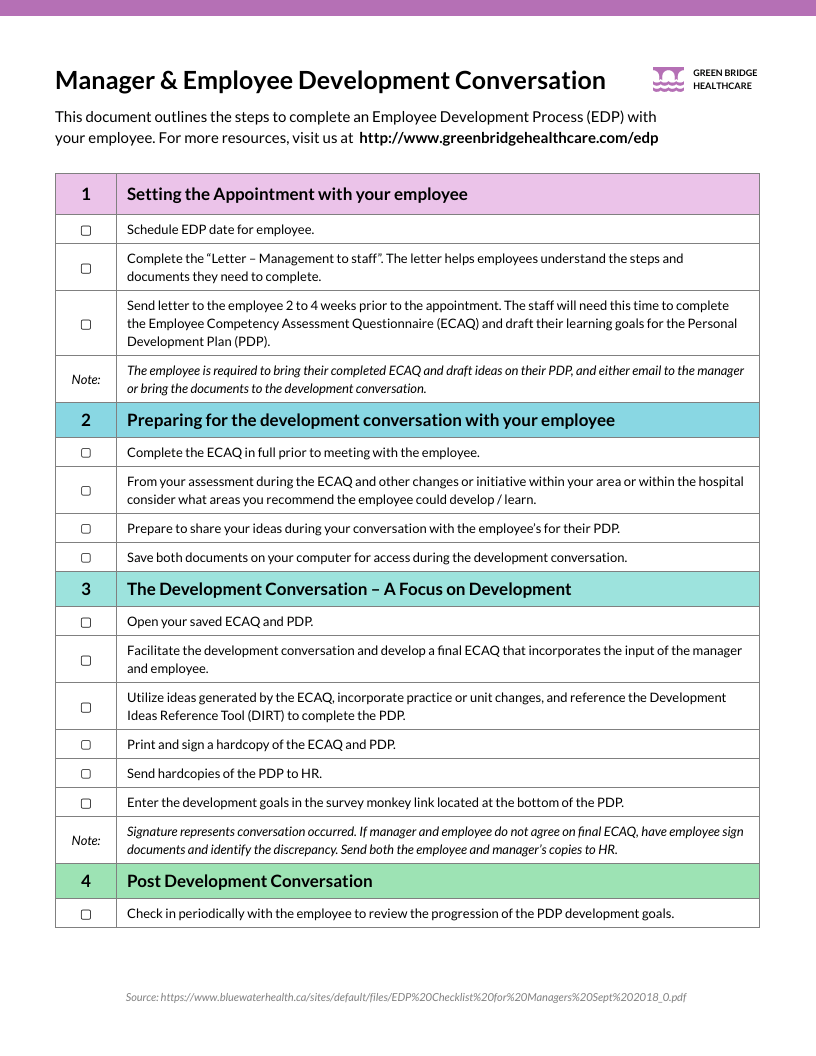Middle Managers: Their Crucial Role In Organizational Performance And Employee Development

Table of Contents
Middle Managers as the Bridge Between Leadership and Employees
Middle managers play a pivotal role in translating the overarching strategic goals set by upper management into actionable plans for their individual teams. They are the interpreters of the organizational vision, ensuring that everyone understands their part in achieving the bigger picture. This crucial function requires exceptional communication skills and a deep understanding of both the company's objectives and the capabilities of their teams.
- Communicating organizational vision and strategy effectively: Middle managers must be adept at breaking down complex strategic goals into easily digestible information for their teams. This often involves using various communication methods to ensure everyone understands their roles and responsibilities.
- Translating high-level goals into specific team objectives: They need to create SMART (Specific, Measurable, Achievable, Relevant, Time-bound) goals that align with the overall strategy, ensuring everyone is working towards the same targets.
- Providing regular feedback and updates from upper management: Keeping teams informed about company performance, changes in strategy, and potential challenges ensures transparency and fosters trust.
- Acting as a conduit for employee concerns and feedback to leadership: Middle managers need to create an open and honest communication channel, ensuring that employee voices are heard and considered by upper management.
Poor communication from middle management can have a devastating impact on team morale and productivity. Uncertainty, misinformation, and a lack of feedback can lead to decreased engagement, increased stress, and ultimately, lower performance. Clear and consistent communication, however, is fundamental to the successful implementation of strategies and the creation of a positive work environment.
Middle Managers' Impact on Employee Development and Engagement
Beyond simply managing tasks, effective middle managers are crucial for employee development and engagement. They act as mentors, coaches, and trainers, fostering a culture of growth and continuous improvement within their teams. This involves identifying individual strengths and weaknesses, providing development opportunities, and creating a supportive environment where employees feel valued and empowered.
- Identifying employee strengths and weaknesses: Regular performance reviews and informal check-ins allow middle managers to accurately assess employee capabilities and identify areas for improvement.
- Providing opportunities for skill development and advancement: This may include formal training programs, mentorship opportunities, job shadowing, or simply delegating tasks that challenge employees and allow them to develop new skills.
- Creating a supportive and motivating work environment: A positive and inclusive work environment fostered by middle managers encourages collaboration, innovation, and higher levels of employee engagement.
- Delegating effectively to empower employees: Delegating responsibilities appropriately empowers employees, builds confidence, and allows middle managers to focus on strategic tasks.
- Offering constructive feedback and performance management: Regular and honest feedback is crucial for employee growth. Constructive criticism, delivered with empathy and a focus on improvement, helps employees develop and reach their full potential.
Highly engaged employees contribute significantly to higher productivity, improved retention rates, and a stronger company culture. Middle managers are instrumental in fostering this engagement through their leadership style, communication, and commitment to employee development. Strategies for fostering a positive and collaborative work environment include regular team-building activities, open communication channels, and recognition of employee contributions.
Middle Managers and Organizational Performance: Key Metrics and Strategies
Effective middle management directly contributes to improved productivity, efficiency, and profitability. They are responsible for driving results within their teams, ensuring that tasks are completed efficiently, and that resources are used effectively.
- Setting and monitoring team performance goals: Middle managers should establish clear, measurable goals for their teams and regularly monitor progress, making adjustments as needed.
- Identifying and resolving bottlenecks in workflow: They need to proactively identify and address issues that are hindering productivity, streamlining processes to improve efficiency.
- Implementing effective performance management systems: This includes regular performance reviews, feedback sessions, and the implementation of strategies to improve individual and team performance.
- Driving innovation and continuous improvement within teams: Encouraging a culture of innovation and continuous improvement ensures that teams are constantly looking for ways to improve their performance and efficiency.
- Ensuring adherence to company policies and procedures: Middle managers play a crucial role in maintaining compliance with company policies and procedures.
Key Performance Indicators (KPIs) that reflect the effectiveness of middle management include team productivity, employee satisfaction, project completion rates, and overall team performance against strategic goals. Best practices for improving team performance and achieving strategic objectives include regular training, clear communication, effective delegation, and a supportive and collaborative work environment.
Developing Effective Middle Management Teams
Investing in leadership training and development programs for middle managers is crucial for organizational success. These programs should focus on developing the skills and capabilities necessary for effective leadership and management.
- Improving communication skills: Effective communication is paramount. Training should focus on active listening, clear articulation, and constructive feedback.
- Enhancing coaching and mentoring abilities: Middle managers need to be skilled in coaching and mentoring their team members, providing guidance and support to help them grow and develop.
- Developing strategic thinking and problem-solving skills: This involves training in critical thinking, decision-making, and problem-solving techniques.
- Promoting effective delegation and teamwork: Middle managers need to be skilled in delegating tasks effectively and fostering a collaborative team environment.
Providing middle managers with the tools and resources they need to succeed is essential. This includes access to training programs, mentorship opportunities, and the support of senior management. The return on investment (ROI) of investing in middle management training is significant, as it leads to improved team performance, higher employee engagement, and ultimately, increased organizational success.
Conclusion
Middle managers play an undeniably crucial role in bridging the gap between leadership and employees, significantly impacting both organizational performance and employee development. Their effectiveness in communication, mentoring, and performance management directly contributes to a more productive, engaged, and successful organization. They are the linchpin of operational efficiency and employee growth.
Call to Action: Invest in your middle management team. By fostering their skills and providing them with the necessary support, you are investing in the future success of your entire organization. Learn more about developing high-performing middle managers and maximizing their contribution to organizational performance and employee development. Empower your middle managers to empower your entire workforce.

Featured Posts
-
 New Go Ahead Entry System At Target Field Uses Facial Recognition
Apr 23, 2025
New Go Ahead Entry System At Target Field Uses Facial Recognition
Apr 23, 2025 -
 Hollywood At A Standstill The Impact Of The Writers And Actors Strike
Apr 23, 2025
Hollywood At A Standstill The Impact Of The Writers And Actors Strike
Apr 23, 2025 -
 10 Mart 2025 Pazartesi Ankara Iftar Ve Sahur Saatleri Ne Zaman
Apr 23, 2025
10 Mart 2025 Pazartesi Ankara Iftar Ve Sahur Saatleri Ne Zaman
Apr 23, 2025 -
 Cub Southpaw Shota Imanagas Mlb Best Splitter A Deep Dive
Apr 23, 2025
Cub Southpaw Shota Imanagas Mlb Best Splitter A Deep Dive
Apr 23, 2025 -
 Nestor Cortes Strong Performance Leads Brewers To Victory Over Reds
Apr 23, 2025
Nestor Cortes Strong Performance Leads Brewers To Victory Over Reds
Apr 23, 2025
